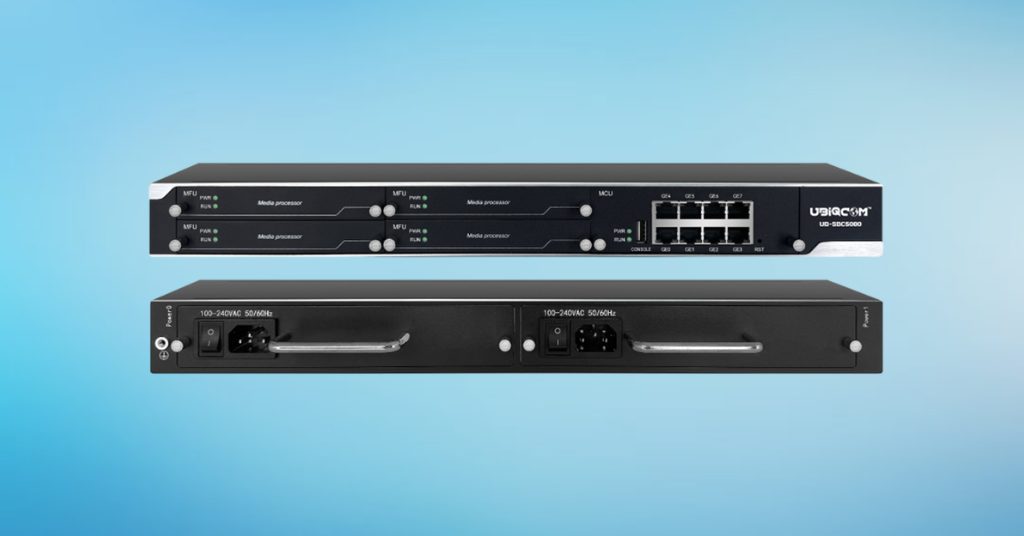In today’s digital-first world, enterprises heavily depend on real-time communication platforms like VoIP, SIP trunking, and unified communications. With this growing reliance comes an increased need for security, performance, and reliability. Many businesses believe that a traditional firewall is enough to safeguard their communication infrastructure, but in reality, firewalls alone cannot handle the complexities of modern VoIP traffic. This is where a Session Border Controller (SBC), like the advanced solutions offered by UBIQCOM, comes into play.

Rather than choosing between the two, enterprises must understand why both SBCs and firewalls are necessary to build a secure and efficient communication network.
Understanding the Role of Traditional Firewalls
Firewalls have been a backbone of IT security for decades. Their primary function is to control traffic entering and leaving a network based on predefined security rules. They protect against common cyber threats, unauthorized access, and malware infiltration.
For voice and data networks, firewalls offer:
- Basic Network Protection: Safeguarding against unauthorized access.
- Traffic Filtering: Monitoring inbound and outbound packets.
- DDoS Mitigation: Blocking malicious high-volume traffic.
- Segmentation: Dividing networks for added security layers.
While essential, firewalls are not designed to understand or manage SIP signaling, VoIP sessions, or real-time communications. This creates gaps that can lead to poor call quality, dropped connections, or even vulnerability to toll fraud and SIP-based attacks.
What is a Session Border Controller (SBC)?
A Session Border Controller is a specialized device or software designed specifically to secure and manage real-time communication sessions. Unlike firewalls, SBCs work at both the signaling and media levels, ensuring seamless interoperability, high-quality voice calls, and robust security.
UBIQCOM’s SBCs provide enterprises with:
- VoIP Security: Protecting against SIP flooding, toll fraud, and eavesdropping.
- Interoperability: Bridging different SIP implementations between carriers and enterprise systems.
- Quality of Service (QoS): Prioritizing voice traffic for crystal-clear calls.
- Encryption: Securing voice and video streams with TLS/SRTP.
In short, SBC goes beyond simple packet filtering – they ensure that communication is secure, compliant, and reliable.
SBC vs. Traditional Firewalls: The Key Differences
| Feature | Traditional Firewalls | SBC |
| Primary Role | Network protection | VoIP/UC protection & optimization |
| Traffic Type | General data packets | SIP, RTP, VoIP sessions |
| Security Focus | Malware, intrusion, unauthorized access | SIP attacks, toll fraud, DoS on VoIP |
| Call Quality | No optimization | Ensures QoS & minimal latency |
| Interoperability | Not supported | Bridges carriers, PBXs, and devices |
| Encryption | Limited | Advanced TLS/SRTP encryption |
| NAT Traversal | Complex setup | Simplified, built-in handling |
This comparison shows that while firewalls defend the broader network, SBCs protect and optimize real-time communication.
Why Enterprises Need Both SBCs and Firewalls
Many enterprises make the mistake of choosing one over the other, but for a truly secure and efficient system, both are necessary:
- Comprehensive Security:
Firewalls block generic cyber threats, while SBCs focus on communication-specific attacks. Together, they create a multi-layered defense. - Quality of Experience (QoE):
Firewalls don’t prioritize voice traffic, but SBCs ensure high-quality, uninterrupted calls. This is crucial for customer-facing businesses. - Regulatory Compliance:
Many industries require secure, encrypted communication. SBCs provide the necessary compliance tools alongside firewall protections. - Future-Proofing Communication:
As businesses adopt UCaaS, cloud calling, and SIP trunking, SBCs ensure smooth integration while firewalls continue to guard the wider IT environment.
UBIQCOM SBC: Building a Stronger Communication Network
UBIQCOM SBC solutions are engineered for enterprises seeking robust security and reliable communication. By working alongside traditional firewalls, they ensure:
- Seamless SIP connectivity with carriers and PBX systems.
- Optimized voice and video traffic for superior performance.
- Advanced protection against VoIP-specific cyberattacks.
- Scalability to support growing business communication needs.
Enterprises that combine UBIQCOM SBCs with firewalls not only fortify their network security but also unlock the full potential of modern communication systems.
Final Thoughts
The debate shouldn’t be “SBC vs Firewall” – it should be “SBC and Firewall”. Firewalls protect the enterprise from general cyber threats, while UBIQCOM’s SBC ensures secure, high-quality communication across VoIP and SIP networks.